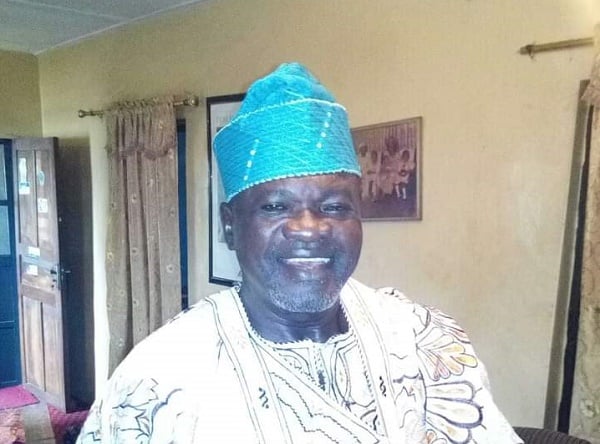In Nigeria, justice does not always depend on who’s right, the facts or even what the law says. And this is not peculiar to Nigeria as a country. Even in the most civilized countries, justice and the law can sometimes seem at odds. Still. In this matter of Oloture, where controversy rages on over copyright, authorship and everything in between, it’s time for all the actors to move their arguments to the courts.
Predictably, things are taking the usual Nigerian turn with each side ‘flexing’ and generally trying to outdo one another. Then there’re those who feel a need to pitch their tent with Team A or Team B. And in this era of social media where keyboard warriors can do a whole lot with minimal effort, it’s much easier to champion things. The immediate danger of this is that truly important issues are often trivialised because they’re turned into opinions, and intense emotional debate regardless of what the actual facts are. It becomes a case of what people think or feel and not what is true.
What am I going on about? You may or may not have heard about the controversy surrounding Oloture, the film about the murky and dangerous world of sex trafficking in Nigeria. The noise isn’t about the film itself which, I gather from its director Kenneth Gyang’s social media posts, is breaking all kinds of viewing records. Instead, the controversy is about how the story for the film was created or what influenced the creation of the story of Oloture. Oloture is told through the experiences of a journalist Oloture (Sharon Ooja) who goes undercover as a prostitute in order to uncover a sex trafficking ring. It just so happens that real-life investigative journalist, Tobore Ovuorie (acknowledged in the end credits of Oloture) had written a story “West-Africa: Undercover inside the human traffic mafia” for the online newspaper Premium Times in 2014. Oloture was released on Netflix on October 2, 2020 by EbonyLife Films. It had been screened a few times in 2019 including at a film festival in Tunisia. In all that time, all seemed well, even in the immediate aftermath of the release of Oloture on Netflix.
However, sometime after October 2, 2020, Tobore Ovuorie took issues with the fact that Oloture which she says is an adaptation of her work (the story she wrote) as being a work of fiction. Being a work of fiction meant that other people were credited with the creation of the story, etc. CEO of EbonyLife Media Mo Abudu herself shares in the opening credits of Oloture. Tobore Ovuorie explains further in an interview she granted early this month. The summary: “Oloture does not closely resemble my work, It is a copy and paste of my work. Oloture is my life story. Whosoever claimed they wrote that script should be flogged.”
Advertisement
Mo Abudu finally decided that she’d had enough of being misrepresented. She released a press statement and a video voicing her press statement reiterating “Contrary to the disparaging comments of Ovuorie, Oloture is a work of fiction inspired by a variety of true events.” Mo Abudu essentially detailed an existing relationship with Tobore, that the two were supposedly on good terms and seemed genuinely unsure of where things went wrong. She also made sure to produce the receipts of their relationship which seemed to consist largely of her assisting Tobore: There’s a message from Tobore thanking Mo for money she sent on the passing of Tobore’s father; Mo also talked about Tobore sending her a birthday message (that wasn’t shown). This of course begs these questions: Why was Mo Abudu fraternising with Tobore? If it’s true that her story and experiences are what thousands of other women have gone through, what singled Tobore out to the point where she’s given a special mention in Oloture’s credits?
As for Premium Times granting EbonyLife permission for Tobore’s story, I’m no legal expert so there isn’t much I can say about that. Which is why I spoke to my friend Kaine Agary who’s a lawyer. From her explanation, Premium Times would have the publication rights to Tobore’s story used on their platform. But she doubts they have the rights for said story to be used in a film. I came away with the understanding that the critical issue was one of authorship. This would seem to be Tobore’s contention, to be given fair recognition that her story was adapted: She claims 70% of her story makes up Oloture but Mo Abudu disputes this saying Oloture is purely fictional. Well, two days after Mo’s statement, Ms. Ovuorie responded. At this juncture, I don’t know about you, my head is turning. Can we get this settled already? I don’t think anything good is going to come out of this media circus.
The problem with prosecuting this case in the media is that it becomes a free-for-all. I know this may sound like the best course of action to some people. The side with the most muscle can then proceed to exact the utmost damage in the public domain using all kinds of avenues. But turning this to a roforofo also gives anyone and everyone the opportunity to poke holes. It’s not like people wouldn’t still talk if the case goes to court. But at least people with the right knowledge would make an effort to offer informed opinions, hopefully.
Advertisement
Meanwhile…
In her video, why did Mo Abudu keep referring to Oloture as Olutore? O-L-O-T-U-R-E. Where’s the confusion? And why did she sound what seemed like an ominous warning about social media use? Sounded like an argument those who want to gag social media would find attractive. Before social media, people still found other ways to be outspoken.







